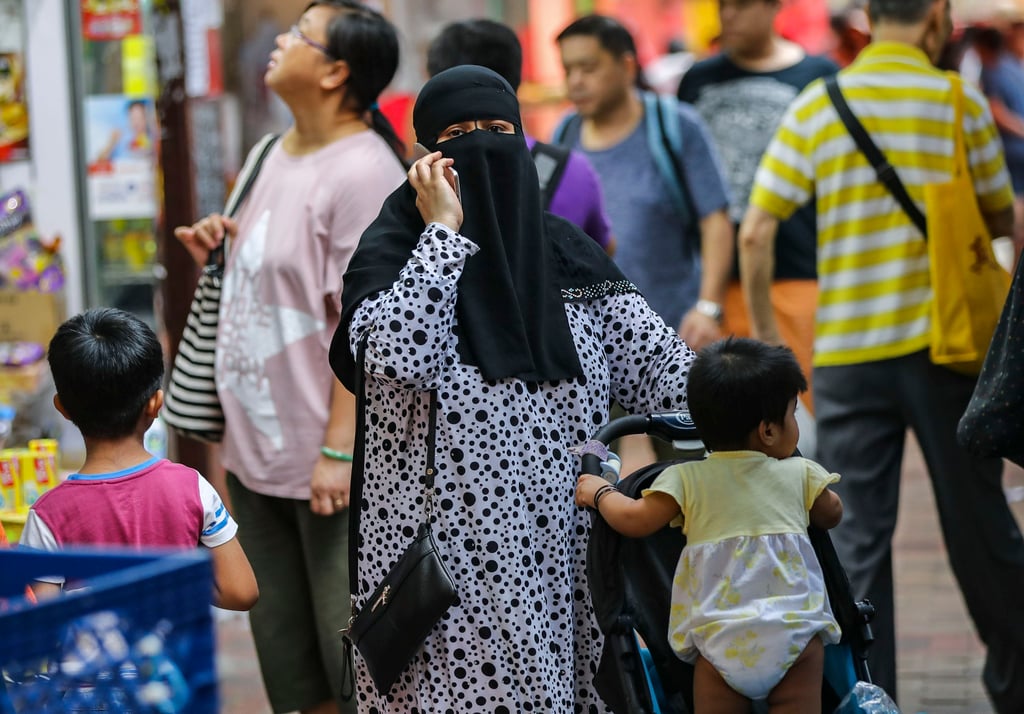88% of ethnic minority elderly, carers have never used Hong Kong support services
The poll interviewed 200 residents aged 60 and over, as well as 50 carers, with the respondents including people of Nepalese, Pakistani, Indian, Bangladeshi and Thai origins.
According to the survey, 87.6 per cent of respondents had never used government services for the elderly, such as designated centres, community and home-based care, as well as residential care.
Only 10 per cent of interviewees said they had successfully received such support.
Some respondents attributed difficulties seeking help to language barriers, while others said the offered services did not match their needs because of religious and cultural differences.
Jackie Chan Chi-wai, supervisor of the charity’s centre for research and development, said: “Most of the ethnic minority elderly residents and carers have never used mainstream elderly centre services and more than half of the carers lack confidence in the services, with language as the main barrier.”
Official figures showed that the number of ethnic minority residents aged 65 and above in Hong Kong increased from 9,910 to 25,792 between 2011 and 2021.
Chan said that with limited use of the available services, ethnic minority residents looking after elderly family members faced huge caregiving pressure.
The survey also asked carers to rank how depended upon they felt on a 10-point scale, with half giving a score of eight to 10.
Some said they spent a minimum of six hours each day handling caregiving tasks.
The carers also showed a lack of confidence in support services for the elderly, with more than half of them giving scores of one to five on a 10-point scale.
“Elderly people are highly dependent and require long-term care services such as being escorted, daycare and household cleaning,” Chan said.

Nanda Gurung, a 33-year-old homemaker of Nepalese origins, said she faced mounting pressure when taking care of her two young children and elderly parents-in-law, all with little help.
She needed to accompany her in-laws on regular hospital visits as they suffered from chronic conditions including diabetes and high blood pressure, while looking after her children at home by helping them with things such as their school work, she added.
Gurung said she had to ask friends for help sometimes, but her in-laws felt uncomfortable with such arrangements.
Gurung, who speaks Nepali and only knows a little English, said she was unaware of the relevant government services as the information on official websites was only in Chinese and English.
“I feel very helpless,” she said.
The homemaker said services such as daycare and nursing homes for the elderly would help, urging authorities to employ more South Asian staff to help at centres or offer interpretation services.
Viola Tsang Yuen-kei, head of the charity’s active ageing and community care service, urged authorities to use training to foster awareness among social service providers about the needs of elderly residents and carers from ethnic minority backgrounds.
She urged the government to boost support measures for service providers.
Tsang called on the government and service providers to provide information in multiple languages across different forms and channels, as well as offer straightforward translations, to help tackle language barriers.
The charity also runs a “Support to Ethnic Elderly Project” that offers outreach, social and recreational activities, as well as mutual support services.
It helps elderly residents from ethnic minority backgrounds to apply for services such as care centres for the elderly, with the wider initiative later expanded to cover carers.
The charity said the project has helped nearly 1,000 people since it launched in 2016.